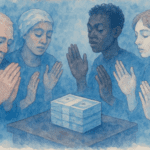Jams everywhere: gridlock is already here
Jam today, jam tomorrow. Jam in the morning, jam in the evening. Jam at midday, jam at midnight. Jam in the city, jam in the suburbs. Strawberry jam on your toast, traffic jam on your road.
I got out of my house in the morning to go to work earlier this week, and found a traffic jam starting at my gate. I got out of my office at 6.00 pm that same day to head home, and found a traffic jam starting right outside my building.
I have been writing about traffic jams since I started work on this column. A quick search on my website reveals that I first wrote about our roads back in November 2003, when I compared them to clogged-up arteries which would cause great distress to the body very soon. I followed this up with an article in 2004, when I recommended that a punitive crackdown on mule-headed drivers was the only thing that might save us.
In 2006 I wrote a piece that brought much controversy in its wake, advocating a road-pricing policy. It seemed to me that we would simply have to go down this route, sooner or later. Many disagreed, thinking I was trying to be elitist and prevent up-coming Kenyans from coming up.
And in 2007 I asked how close we were to total gridlock, and reiterated that this problem had no easy solution. I courted more unpopularity by stating that harsh policy measures would be needed: higher taxation of driving and car ownership, and proper pricing of the driving activity.
In short, I have been banging this particular drum for a quite a while. And guess what, folks, gridlock is with us, right now, right here. It’s not something waiting to happen, it HAS happened. Once upon a time, we had ‘rush hours’. Now, there is no rush, at any hour of the day; it’s all slow. There is no such thing as ‘off-peak’ time on the roads: we are needled by the peak at all hours. And if you happen to arrive at our international airport at the worst times, be prepared to write off the next three hours of your life.
I am now doing what every busy person whose time is of some value is doing: I’m trying not to go anywhere! I see this everywhere: people are reluctant to go out to meetings; they are reluctant to conduct important errands. Note to entrepreneurs: the first person to introduce a video-conferencing service that is cost-effective and actually works, will become very rich very quickly…
More than 200 newly registered cars land on our dying roads every single day. Newly registered, but far from newly manufactured; most are a moment away from breakdown. Equally, idiots in droves descend on the roads every day. These idiots don’t give a damn about traffic rules, or about the well-being of anyone but themselves.
If you want to take public transportation to work, you have a stark choice: pile into an overcrowded matatu at great cost to your personal dignity and great risk to your life; or get into an overcrowded bus at great cost to your personal dignity and great risk to your life. Is it any wonder so many people try to drive to work?
And finally, most of the grand plans we had for building new roads in and around this city have stalled, for reasons we all know. By now, there should have been expressways and bypasses linking up all parts of the metropolis. There are not. The same old roads take on all the new traffic.
So, lots of new cars, lots of drivers with no etiquette and no decency, no mass public transit system worth its name, and no new roads. Your IQ need not be terribly high for you to work out why you are sitting in that jam.
Have you ever looked at those airbrushed and photo-shopped snapshots that promote the Vision 2030 project? The ones that ask us to dream of the metropolis of the future, with its swank new first-world roads? Have you noticed that they never seem to have any traffic jams? I always want to ask: what happened? Where did all the cars go? Which magic wand did we wave to wish them away?
We will remain thoroughly gridlocked until our leaders and policy-makers wake up. There can be no traffic-free 2030 until we do some very hard things today. We have to eradicate corruption in car importation and licensing; we have to actually build roads rather than dream about them; we have to introduce competitive AND regulated public transport; we have to enforce good behaviour on the roads; and we have to make people who want to drive bear the full cost to society of doing so.
What we have to do is exactly the same as it was in 2003. We just never do it. So if you want me to meet you somewhere, forget it. I’m not coming.

Buy Sunny Bindra's new book
The X in CX
here »
Popular Posts
- Where are you rushing to—your funeral?June 29, 2025
- How to spot a real thinkerJune 15, 2025
- The pause that saves usJune 8, 2025
- Built the app, forgot the flowJune 22, 2025
- The map will appear—once you start walking.July 6, 2025















